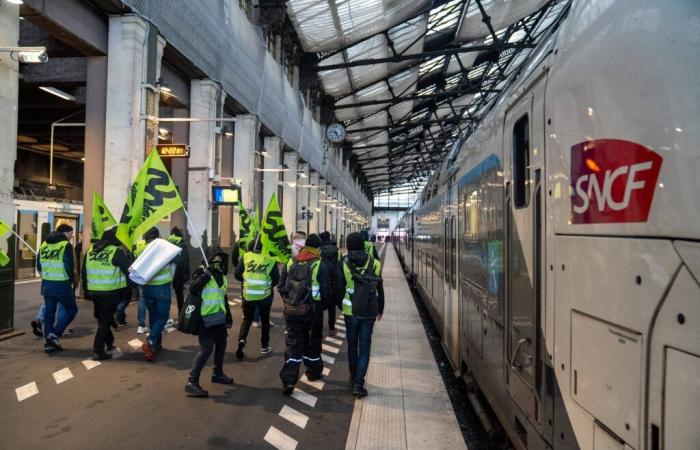A strike at the SNCF for Christmas has become an annual ritual. As of December 11, the railway workers' unions are calling for an indefinite and renewable strike for 24-hour periods. Objective: obtain responses to their demands such as a moratorium against the dismantling of Fret SNCF, more lenient terms in the terms of opening regional lines to competition or even more generosity in terms of salary increases, reports Le Figaro .
And like every year, the bill should be very steep. Each day of strike costs the SNCF more than 20 million euros. That is more than half the price of a new TGV train. For example, the 2022 Christmas strike cost almost 100 million euros. Worse, each day of a transport strike causes a loss for the French economy of around 300 million euros.
The rest after this ad
Strikes… and privileges
Between 2022 and 2024, the average remuneration of the 278,600 SNCF employees increased by 17%, and even by 21% for the first salary levels. Not counting the extras paid to SNCF staff, like the JO bonus, with an exceptional bonus of 95 euros per day (with a ceiling of 1,900 euros) paid to 50,000 railway workers who worked from July 22 to 8 September, the period of the Olympic and Paralympic Games.
The rest after this ad
Another advantage enjoyed by railway workers: almost free city medicine offered as part of a special Social Security scheme, in around a hundred medical practices, five laboratories and three medical imaging centers. 250,000 people housed.
Special regime also for pensioners. As in the public service, a railway worker's pension is equal, at the time of its liquidation, to 75% (at full rate) of his salary during his last six months of activity.
The rest after this ad
The rest after this ad
The cost of the SNCF for taxpayers (households and businesses) increased to 18.5 billion in 2021 then to 20 billion in 2022. And the railway workers' strikes still have a bright future ahead of them… The SNCF has not experienced a only year without social movement for seventy-seven years!






